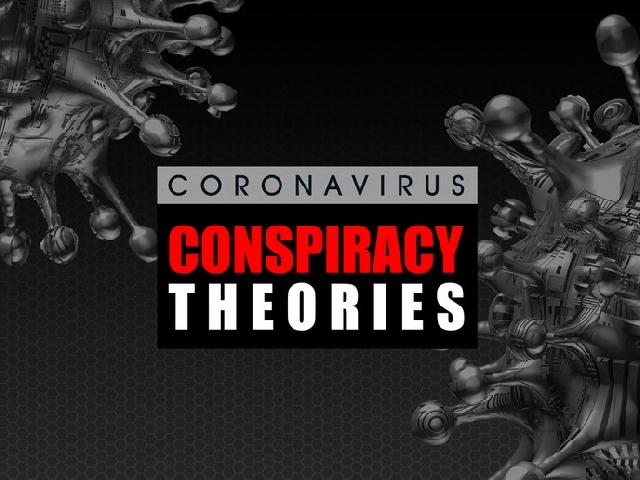Beware of COVID-19 conspiracy theories
 covid conspiracy
covid conspiracy
Last week, many people I came into contact with told me the coronavirus isn’t real. My mechanic, a guest at the office and a few more professed how they could never get the coronavirus. I even had meetings where some people just refused to wear a mask, or took it off once they entered.
I engaged a bit further. Some people think COVID-19 is as a result of some biological warfare, or is a biological weapon not intended for Africa. Real people think that. Then I had one man postulate that it might be the plan of the world pharmaceutical industry to sell vaccines. 5G towers causing the virus is quite popular so I got that too.
Some even asked me “where are the sick people? You’re not seeing many sick people!”
These disbeliefs are very disconcerting because COVID 19 is very easily transmitted and if a large number of people continue to believe it’s just “not for them”, that’s dangerous on many, many levels. Conspiracy theories are especially tempting during such a huge occurrence like COVID-19 because it helps to explain a lot that we can’t readily explain. Our brain has a function of trying to make sense of things and when there’s no upfront explanation, it has to bring something more easily graspable to the forefront.
Proportionality Bias.
Proportionality Bias is this tendency for us to assume that big events have big causes. It’s not a wild defect; it’s only natural. But critical and/or scientific thinking can help us out of this, especially because it’s so easy to be led astray. We need to have a healthy appreciation of how one small decimal point in 1000000.00 can change the meaning of the number entirely.
Another problem is where the onus is on you to provide proof of facts to an overly cynical naysayer. I’m talking about the people that have impulse responses like “were you there yourself?”, “…so you’re saying nobody can fake this” and the like. Having to convince people like that of a worldwide threat can be a big mountain to climb. How do you even respond to “you don’t know, anything can be true”.
Because they’re right if you go by their logic. Because there might be some way to make pigs fly but as at today, the coronavirus is very, very, VERY real and the severity of the situation hasn’t changed much so do your best to wear your masks and observe social distancing protocols as much as you can. The virus is survivable. The world IS still spinning. It can take a considerable amount of time to sit with someone and debunk conspiracy theories. Most people just don’t do it.
Restrictions have eased up since the pandemic began. Secondary Schools are open now in Ghana though with strict protocols in place. Elsewhere, the NBA is back again. But don’t be fooled into thinking that when you encounter someone with COVID-19, the virus is going to be like “oh my, the Champions League is back this week so let me take a break and go easy on you”. No, it won’t! Precautions must be taken as seriously as when this started.
Conspiracy theories are nothing new, obviously. They’re just harder to spot nowadays.
In 1890, a newspaper claimed that electric light was responsible for the global influenza outbreak. It sounds crazy now, right? But people bought into that! We can find conspiracy theories scattered all over history. In the 14th Century, a conspiracy theory claimed that Jewish people were responsible for the Bubonic Plague. Also in 1918, rumours spread that German pharmaceutical company Bayer had tainted its Aspirin tablets headed for the US with the Spanish flu.
All these might seem like conspiracy theories now but a lot of people bought into them at that time. It’s happening again with the coronavirus pandemic. A century from now they will call it totally absurd when they look back at us and hear some people say that masks harm their health in a time of a novel high-risk airborne contagion.
What’s worse is that in 2020, technology has made it very easy to get the wrong information across, almost as easy as it is to get the right information across. The internet is live and accessible to billions who are free to publish lies and truth alike. With a good enough budget, you can make anything sound true. You can make anything look true. That is currently a problem with the coronavirus because there are so many theories out there that just aren’t true but look too good to overlook at first glance.
Believing COVID-19 is overblown comes with a hefty price.
There are many people in the hospital, at home, that are dying or in critical conditions because they did not take the virus seriously. I know people that have died from this virus. I know people that know people that have died from this virus. If you want me to confirm for you if it’s real, this is your confirmation: the virus is real and people are still getting it. Don’t be an avoidable statistic.
I have also noticed social media companies like Facebook, Twitter and YouTube taking measures to reduce the ease of spread of conspiracy theories. But it’s not easy for them. The share volume and frequency of uploads make it harder to flag and tag false information. Also, when they do find false information, it complicates issues when the person’s freedom of speech and expression comes into play. And it can get messy very quickly with the risk of bad press. This leaves them doing something, but definitely not close to enough.
What we need to do about it.
It is has become clear to me that it is incumbent upon you, upon me, upon all decent and well-meaning people, whenever and wherever we find ourselves, to try and stop these theories and treat them with the needed scepticism before many more people believe them. Do it for yourself and your loved ones, if that thought helps motivates you. The coronavirus is no respecter of persons. You can’t fully control how someone you love will come into contact with the virus. Short of cutting yourselves off from the whole world, our best bet is to individually contribute to reducing the spread, until a permanent solution is found.
There are a few ways I can imagine we can help.
Let’s use our heads.
Many things can easily be explained with a reasonable, logical, yet simple analysis. Take for instance the claim that 5G can cause you to fall sick. That theory came about when the map of 5G Towers got superimposed with the map of COVID-19 infection cases. It is almost like everywhere you find a 5G Tower, you’ll find coronavirus cases. And it is true, the maps do look alike.
But one doesn’t cause the other.
Population density maps also show similar concentrations and if you take a minute and think it through, just a little, you’ll find that 5G Towers are built in places where you find more people. And coronavirus cases have a high tally in higher populated areas than say, a village. Sometimes, we need to pause and ask ourselves “is there a simple, logical explanation to this theory”.
Here’s another thing we can do.
Let the experts decide.
There are people who have spent decades in certain fields and definitely know much more than you and I would. And I’m not even talking about just Ghana. We’re in the information technology age. Adopt this when deciding what to do concerning COVID-19. Do you doubt your local politician? Has your physician recommended something stranger than usual? Is social media confusing you? Turn to worldwide experts who have built a solid reputation over long periods of time.
Most wrong theories have been addressed by experts. You have to check what those experts have said when they held up that theory to scrutiny. Most myths and wrong theories will quote a professional in the relevant field to give it some weight. It is worth checking if most credible doctors or scientists agree what is out there.
Lastly, one sure thing you can do is this.
Add your voice to the truth.
You may not personally believe in COVID-19 conspiracy theories, but you may know people who do. While you can’t change everyone’s mind, you have a good chance of changing the minds of some. And now more than ever, it might be important for you to try. It’s going to be hard not yelling “why do you believe this nonsense!” but try.
Experts say (see how I used “experts” like I earlier recommended) that the best way to approach them is not by shaming them for believing something, or overwhelming them with counterevidence, but you should try and be empathetic; put yourself in their shoes and then nudge them a little to think a bit more critically.
COVID-19 is real.
♕ ---- ♕ ---- ♕ ---- ♕ ---- ♕ ---- ♕ ---- ♕ ---- ♕ ---- ♕
Hit me up on social media and let’s keep the conversation going! I read all the feedback you send me on LinkedIn, Twitter, Instagram and Facebook.
Go to bit.ly/maxwrites to read all my previous articles.
Also, feel free to send me your articles on relevant topics for publication on the Macroeconomic Bulletin. I’d give you full credit, an intro, and an outro. Kindly make it about 1000 words.
Have a lovely week!
Source: classfmonline.com/Maxwell Ampong
Trending Features

Amid record funding, critical gaps loom over Ghana’s 2026 health budget
15:21
Is the Special Prosecutor independent?
00:57
Africa’s Bold Stand: Mali’s victory and Ghana’s resolve should be the blueprint
13:50
In defence of Act 794: Context, competitiveness and the real path to mining value
13:59
KGL's Resilience, impact in 2025 a remarkable benchmark for corporate Ghana
09:06
Is Ghana’s Special Prosecutor truly independent? Legal analysis raises key questions
14:39



